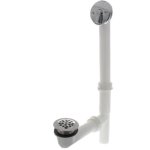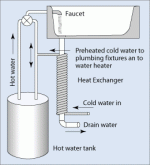My water comes out of the spring @ 52 degrees - year round. I noticed no savings in electricity by making this upgrade.
Theoretically - it probably does use less electricity but it's certainly not a lot and not easily noticeable.
Most places have similar ground water temperature, but the ambient temp, and humidity can vary widely.
I doubt that Washington's weather is anything like South Carolina.,, weather has a lot to do with the warming of the water.
At my BIL's farm, near Williamsburg VA, his water tank is located in a "pump house" which is at the well, not near other buildings.
I mention it, because the weather at that farm is similar to South Carolina,
WARM, and HUMID!
Well, when my nephew and I would go to the pump house to get a drink of C O L D water, then leave the door open,,
my brother in law would go BALLISTIC!! the tank, pump, wiring, and basically EVERYTHING in the pump house would be drenched in condensation.
Depending on the water usage (the well pumped drinking water to 400 cattle) condensation would be running out the door.
If the door was kept closed, there was little or no condensation, the air would not exchange,
One time, we left the door open for a week, the concrete floor in the pump house was covered with green, wet, slime.
That was just due to the constant moist conditions.
Close the door for a week, it would dry out in the small building.


